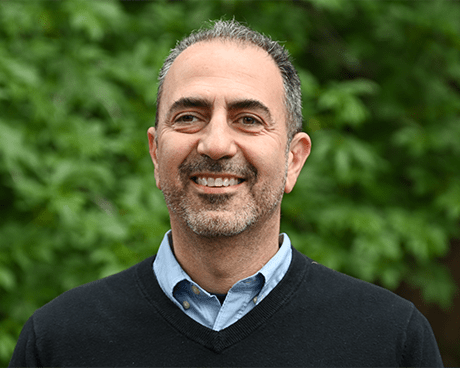
It’s the start of a new school year, and parents of college students everywhere are helping their kids pack up and head back to campus. But for some families, sending their kids off to college doesn’t mean letting go…in fact, it’s the opposite.
For these parents, the transition to college life is not so much about letting go as it is about holding on even tighter.
While being involved in every detail of their college-age kids’ day-to-day lives can give parents a comforting sense of control, it comes at the expense of their child developing confidence and competency. Ramsey Khasho, PsyD, Chief Clinical Officer at CHC, has advice for these well-intentioned—but overinvolved—parents.
Setbacks are essential to growth and resilience
Think about it this way…when you teach your child to ride a bike, you start with training wheels. They build core skills and confidence. You then remove the training wheels and allow them to ride. After some falls, skinned knees, and bruises, your child picks themselves up again and gets back on the bike to try again, and again, and again….until they finally get it. We have all seen the experience of pure elation when a child is first able to ride a bike on their own.
I’ve always said the greatest parenting tool is self-reflection. It starts with knowing ourselves as people and as parents. Reflect on why it’s hard to let go. Where does this come from and what can I do about it?
Parents must let go knowing full well that a child isn’t fully ready to ride a two-wheel bike. They also understand that through the experience of practice and failures, the child will ultimately build the skills and mastery to ride. But they develop something even greater: a sense of autonomy and grit—the ability to independently persevere beyond challenges…and ultimately to reach success.
I’m speaking not only as a psychologist, but also as a father of three who also struggles with this: We want the best for our kids, we don’t like to see them struggle, and we know what they need to do to succeed—so we often feel compelled to scaffold everything in life for them.
Tips for letting go
If you struggle with letting go as a parent/guardian, here are some tips to try:

Self-Reflection
I’ve always said the greatest parenting tool is self-reflection. It starts with knowing ourselves as people and as parents. Reflect on why it’s hard to let go. Where does this come from and what can I do about it? With greater self-awareness comes the ability to be more attuned to the moments where I tend to over-scaffold my child and can then practice letting go.

Would you like to learn more about how you can support your child as they prepare for life on their own? Check out our podcast on preparing your child for a smooth transition into adulthood.
Start Small
It’s hard to fully let go. So, scaffold yourself! Start with something small to practice letting go. Maybe it’s that 4th grade mission project where you do too much work on the diorama or the college essay that you edit so much that it becomes your essay. Find a place where you can do less or nothing at all, while still being your child’s coach and encourager.
Accountability
Parenting is hard, especially when done alone. Ask your partner, friend, or another close adult to help hold you accountable when you struggle to let go. Sometimes a gentle reminder from a trusted friend or family member is just the thing we need (and our child needs) to help us let go.

CHC is here to help
Sometimes our children struggle with mental health or learning differences, and letting go in the traditional way doesn’t fully apply. Whether your child is struggling, or you are struggling with parenting, CHC is here for you.
Our compassionate and expert clinicians and learning specialists are available to support your child and your family. Please reach out to our Care Team to learn how we can help: careteam@chconline.org or 650-688-3625.


Meet The CHC Expert
Ramsey Khasho, PsyD , Dr. Ramsey Khasho, PsyD, is the Chief Clinical Officer at CHC with over 25 years of experience treating children, teens, and families. He specializes in anxiety, depression, ADHD, autism, and forensic assessment. Dr. Khasho is a court-appointed expert in California and a clinical assistant professor at Stanford University. He also teaches at the University of San Francisco. In his free time, he enjoys family, reading, and Peet’s coffee.





